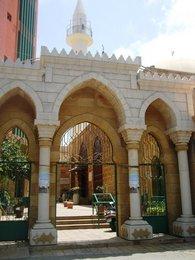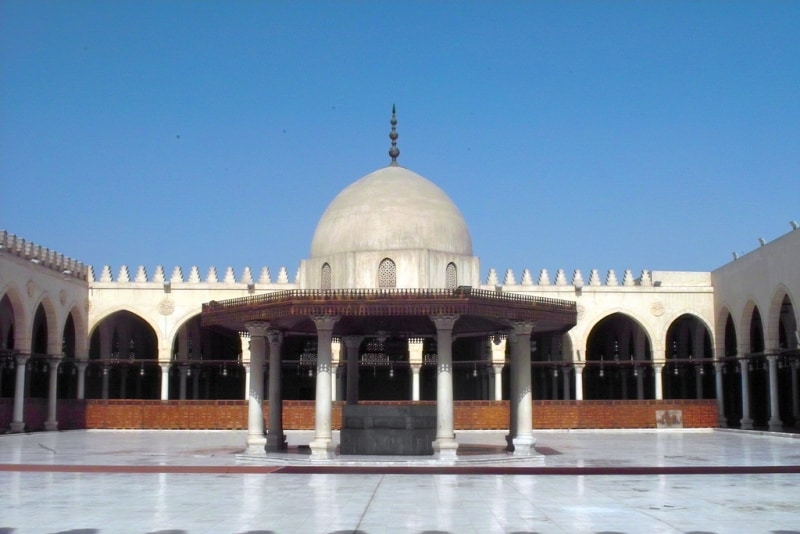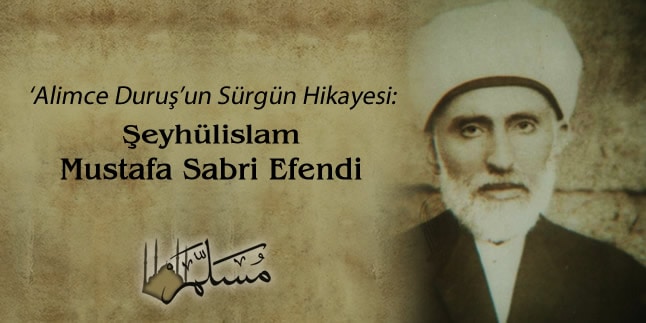Muslims have a duty of accounting the ruler. It’s fair to say that it’s an Islamic requirement, and many ahadith establish this. This article explores a manifestation of this principle in one of the bastions of Islamic scholarship and knowledge, the great Imam Al Awzai, one of the great early Imams of the Muslim ummah.
In one hadith that establishes this principle, the Messenger of Allah (saw) said:
“The best form of Jihad is the just word against an unjust Sultan or sinful ruler…” [1]
Here Jihad is referenced in the linguistic sense as mentioned by Imam al-Munawi. A “just word” implies it is the truth, what is right, in the best of manners possible.
If that wasn’t enough:
“The best of martyrs is Hamza b. `Abd al-Muttalib and a person who stands before an Imam and enjoins the good and forbids the wrong and is killed as a result…”[2]
This hadith indicates the political character of commanding good and forbidding wrong (as it involves rulers/people in power). The letter waw here is grammatically conjunctive (`atf) and thus indicates the best of martyrs is Hamza (ra) and anyone else who accounts the rulers in their wrongdoing, oppression and injustice.
Injustice in today’s world
The events in various parts of the Muslim world over the last half a decade are indicative of the Ummah’s strong mobilisation and open opposition against the rulers who have served the interests of current superpowers. The ummah no doubt desires real change and not mere plastic surgery – structural in nature and at the level of systems, not mere faces and individuals.
The illegitimacy of the current Muslim rulers has been clearly exposed and their treachery, betrayal, incompetence, injustice, servitude to outside nations, mismanagement of the regional resources and lies are no longer tolerated.
There are certain scholarly individuals throughout the history of this ummah who have risen as heroes, who show how to account the rulers and carry the knowledge they have acquired.
One such figure, fitting for our times especially in how the Syrian people have been slaughtered by the cowardly Syrian regime, is the illustrious Imam al-Awza`i (may Allah have mercy on him).
Imam al-Awza`i
His full name was Abu `Abd al-Rahman Ahmad ibn `Amr (d. 177AH, 774AD), born in Ba`albek, and was known to be extremely pious. He was one of the leading jurists and hadith scholars of his time and attained the level of mujtahid.
He was an orphan and moved to Damascus living in areas populated by various tribes and hence acquired the appellate al-Awza`i as his father was from the Awza` – a Yemeni tribe or perhaps due to a village with the possible name of al-Awza`.
He also moved to the coastal city of Beirut and spent the rest of his life there.
Al-Awza`i was a jurist-scholar with widespread fame, notably for the fearless manner in which he would approach the elite of the day (see: Ibn Hibban, al-Mashahir, pp.285-286; Ibn Kathir, al-Bidaya wa’l-Nihaya, 10:123-and al-Zirikli, al-A`lam, 4:94).
Al-Awza`i’s Reputation
It was said about him as listed by Ibn Kathir’s al-Bidaya [3]:
It was said of him by Imam Malik: “al-Awza`i was the Imam followed by all”, and Sufyan b. `Uyayna said: “al-Awza`i was the Imam of his time”, and Muhammad b.`Ajlan said: “I have not seen anyone who has advised the Muslims more than al-Awza`i” and Yahay b. Ma`in said: “the scholars are four: al-Thawri, abu Hanifa, Malik and al-Awza`i…”
Speaking courageously in the face of the Amir
What follows here is an interesting extract taken from Ibn Kathir’s al-Bidaya, that details the exchange between Al-Awza`i and the Amir of Damascus:
When `Abd Allah b. `Ali entered Damascus – the uncle of al-Saffah (the first Abbasid Caliph) banished the Umayyads from Syria and Allah (Glorified is He!) removed their state from their hands – he sought al-Awza`i.
He went missing for three days but then appeared before the court [of the ruler].
al-Awza`i said: ‘I went in to see him and he was reclining on his bed with a staff in his hand and soldiers to his right and left bearing menacing swords and iron rods. So I imparted the Islamic greetings to him but he didn’t reply. He banged the staff in his hand and asked: ‘O, Awza`i, what’s your view regarding what we have done to the people and this land in removing the oppression of those [Umayyads]? Was it considered Jihad and defending Islam?’
He said: ‘I said: O Amir! I heard Yahya b. Sa`id al-Ansari say: I heard Muhammad b. Ibrahim al-Taymi say: I heard `Alqama b. Waqqas say: I heard `Umar b. al-Khattab say: I heard the Messenger of Allah say: “Actions are based on intentions and every person will get what he intended […]”
He said: [The ruler] stamped his staff harder than than before and made all those around him seize their swords with their hands saying: ‘O Awza`i! What do you say regarding the blood of the Umayyads being spilled?’
I said: ‘The Messenger of Allah said: “A Muslim may not spill the blood of another except in three cases: [1] a life for a life, [2] and adulterer and [3] and someone who leaves his religion by separating from the community”’
He stamped his staff even more fiercely than before and asked: ‘what do you say regarding their wealth?’
I said: ‘if they acquired it by unlawful means, then it would be unlawful for you but if they attained it through lawful means then it is permitted for only if you acquire it through lawful means.’
He then banged his staff down even harder than before that and said: ‘shall we give you a position of authority [in the courts]?’ I replied: ‘your predecessors were not fond of offering me such a position. I wish to complete the excellence that was begun by them for me’.
He said: ‘so, you desire to leave?’
He said: ‘I was waiting for my head to be severed from my shoulders in front of him. So he ordered me to leave. When I left with his messenger following behind me, he had with him 100 dinars and said I should take it and spend as it was from the Amir.
So I did take but distributed it to the needy as sadaqa because I took it out of fear…’[4]
There’s plenty to admire here in this exchange. The fearlessness of Imam al-Awza`i in front of such hard power, to still say what he knew was true. Also notable is the etiquette of the Imam al-Awza`i, who, knowing what kind of man the Amir was, could still begin with “O Amir”, imparting the Islamic greetings, remain calm, surely knowing what dark possibilities he could face.
It’s important also to note the procedural orthodoxy in this debate shown by Imam al-Awza`i. He was always prompted for his own view, ‘what do you think?’, yet he’d reply with the words of the Messenger of Allah (saw), with the intention of making clear the right and the wrong.
Of course, he would diassociate from any form of bribery and temptation in exchange for abandoning his adoptions on what he was asked. Many today offered positions in the Lajnas and Diyars compromise their integrity as religious jurist-consults.
It’s not just a matter of being impressed with the conduct of this scholar.
The courage and steadfastness here is something Muslims are waiting and, quite literally, dying to see from scholarly leadership in front of today’s elite, and for sure, there are those who act in such a way and for the lack of the Ummah’s support, pay dearly.
This is the standard of behaviour to which a devotee of sacred knowledge should be measured against. We and any engaged in da’wah or sacred learning must make this our model, and if not, should be in unquestioning support of those that do.
May Allah raise us up with the likes of Imam al-Awza`i. Ameen.
Abundant salutations and blessings upon the best of examples, his family, companions and the best of those who follow them.
Original piece by Ustadh Safarruk Chowdhury, edited for the Hizb ut-Tahrir Australia website.
[1] Abu Dawud, Sunan (#4344) and al-Tirmidhi, Sunan (#2174); al-Bayhaqi, Shu`ab al-Iman, 6:2577 and al-Bidaya wa’l-Nihaya, 1:243.
[2] Al-Mundhiri, al-Targhib wa ’l-Tarhib, 3:229; al-Haythami, Majma` al-Zawa’id, 7:269 al-Suyuti, al-Jami` al-Saghir (#4747).
[3] Ibn Kathir, al-Bidaya wa’l-Nihaya, vol.10, p.123.
[4] Ibn Kathir, al-Bidaya wa’l-Nihaya, vol.10, pp.124-126.
![]()

















